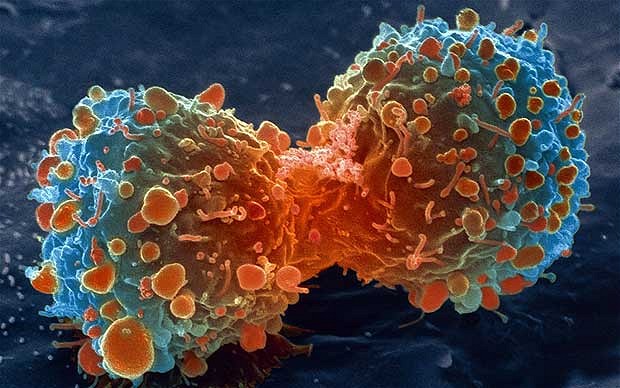In a recent article in the Sunday Review section of The New York Times, former editor and reporter George Johnson reflected on how “when the government publishes its Report to the Nation on the Status of Cancer, it is followed by a familiar lament” that “we are losing the war against cancer.” For the longest time, heart disease has been the leading cause of death. Cancer, however, is edging itself closer to taking over that spot.
Johnson believes that the “comparison is unfair” because cancer is a much more difficult problem to tackle due to it being “a condition deeply ingrained in the nature of evolution and multicellular life.” As he puts it, “the war on cancer implies that with enough money and determination, science might reduce cancer mortality as dramatically as it has with other leading killers — one more notch in medicine’s belt.” While that would be a wonderful development, Johnson goes further by wondering what would be the cause of death for people since the two main causes of death — heart disease and cancer — “are primarily diseases of aging” and that “fewer people succumbing to one means more people living long enough to die from the other.”
Why does cancer continue to linger so much, even as the rates slowly seem to be declining? This “standoff is a kind of success” thanks to the gradual increases in our average life expectancies. Since it’s “almost 79” now and “the median age of cancer death is 72,” it’s not as much a surprise that “we live long enough for it to get us.”
What makes cancer special is that, unlike other diseases that have caused deaths in both the past and present times, there is not just “a single infectious agent, a precise cause that could be confronted.” Cancer is “the result of a basic evolutionary compromise” because “as a body lives and grows, its cells are constantly dividing, copying their DNA.” All of this copying through several generations of cells can undoubtedly lead to errors somewhere down the road. Although the “cells have developed complex mechanisms that identify and correct many of the glitches,” these systems are far from perfect. It is likely that they never will be because “mutations are the engine of evolution.” In the case of cancer, when a single cell gets “too much power,” it gains independence and “like a new species thriving in an ecosystem, it grows into a cancerous tumor.”
Therefore, this is the key behind why cancer risks increase as we age — the longer we live, the more chances our cells have of possibly mutating into cancer. In a sense, “cancer will eventually kill you — unless you die first of something else,” which “would be true even in a world free from carcinogens and equipped with the most powerful medical technology.”
While the war against cancer will continue for years to come, progress and encouragement for a future with less cancer stems from the continued effort in prevention methods, such as public sanitation improvements, anti-smoking campaigns and the Human Papilloma Virus (HPV) vaccine.

 Why Does It Seem Like Everyone Has Cancer?
Why Does It Seem Like Everyone Has Cancer?



 Our Monthly Tip: Make an “In Case of Death” File to Ease Loved One’s Grief
Our Monthly Tip: Make an “In Case of Death” File to Ease Loved One’s Grief
















